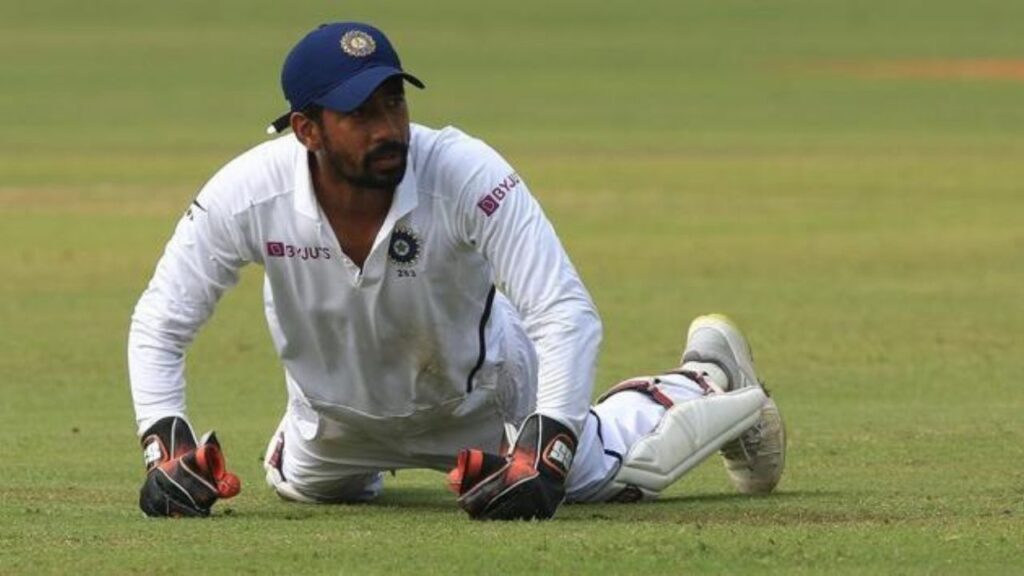Cricketers, captains, coaches, c-lectors and communication
Tuesday 1 March 2022 | Written by Rahul Patil | Published in Cricket, Sports

Justin Langer. PHOTO: REUTERS/22022821
Over the last couple of months there have been lots of ‘breaking news’ related to cricket.
Unfortunately, most of them are related to action off the field rather than on it which is quite disappointing.
Having worked in various corporates around the world in the last 20 years I find poor communication or the total lack of it to be a critical factor in all these events.
Let’s start off with Virat Kohli resigning as India’s T20 captain at the end of the last T20 World Cup. A lot was written about the timing of his decision just before the start of such an important tournament. I don’t know Virat personally but from what I have seen on the field, in his interviews and read about him he comes across as an extremely honest individual. The moment he decided that it was time for him to step down as India’s T20 captain he came out and told the world which if you ask yourself is the right thing to do. Therefore, it is unfortunate that some people chose to blame the timing of Virat’s decision for India’s poor performance in the tournament.
The fact that Virat only gave up the T20 captaincy meant that he wanted to continue as India’s ODI (one day international) captain. Having different white and red ball captains in cricket is a common occurrence. But having separate captains for T20’s and ODI’s has never happened before. Hence it was only a matter of time before the ODI captaincy was also taken away from Virat. But the way it was done left a lot to be desired. The whole finger pointing saga that followed showed a clear lack of communication between Virat, Sourav Ganguly (president of Board of Control for Cricket in India) and Chetan Sharma (chairman of the selection committee of Indian cricket team).
Clearly unhappy with the way he was treated, Virat gave up test captaincy as well after India’s loss to South Africa and the reign of India’s most successful test captain thus came to a sad end.

The recently concluded Ashes series was boring to watch with Australia pounding England into submission literally from ball one. But the post series drama made up for the lack of excitement on field action during the series. England’s dismal Ashes performance meant that it was inevitable that some people would lose their jobs. And as expected the Ashes casualties included managing director Ashley Giles, coach and selector Chris Silverwood and batting coach Graham Thorpe with Andrew Strauss coming in as interim managing director.
The change in management was expected but James Anderson and Stuart Broad being dropped for England’s tour to the West Indies was a bomb that nobody saw coming. With 1177 test wickets between them, the two legends aged 39 and 35 respectively still produce the goods for England regularly. Even in the horrific Ashes series, Broad was England’s second highest wicket taker and Anderson still had the best average of all of England’s bowlers. Nobody is un-droppable but when someone who has served English cricket for so long is dropped (for reasons other than performance) I feel they deserve to be told face to face and not over a phone call. Once again, we see poor communication between Strauss and the two legends creating unnecessary drama which could have been avoided.
While England’s Ashes performance was dismal, Australia’s was incredible. A 4-0 drubbing of their traditional rivals just after a maiden World T20 title meant that Australian cricket was back in the news and this time for all the right reasons. But brewing underneath the aura of invincibility was a lava of player unrest with the coach Justin Langer. The man who was brought in to save the face of Australian cricket amidst #sandpapergate had somehow become unwanted when the team started doing well.
To quote Pat Cummins “to be better players for Australia we need a new style of coaching and skill set”. Langer lost the support of his players a while back. Cricket Australia were well aware of how the players felt about Langer therefore the question still remains as to why they offered him a six-month extension of his contract? If he wasn’t the right man to coach Australia beyond six months, then how was he the right man to coach them for the next six months? Or did they think that he actually was the right man to coach Australia and didn’t agree with the players?

We will never know the answers to these questions but what the whole incident showed once again is the lack of clear, open and honest communication between Langer, the players and Cricket Australia. There is an age old saying, “A stitch in time saves nine” and one feels that Cricket Australia could have been saved the embarrassment had they acted promptly when the first cracks started to appear between Langer and the players.
Last but not the least, four Indian test regulars were dropped when the selectors picked the team for the home series against Sri Lanka. Cheteshwar Pujara and Ajinkya Rahane have been facing the axe for a while now. Runs are the currency that batters are measured by whereas bowlers are measured by the currency of wickets. When you stop scoring runs or taking wickets however big a player you are, you start feeling the pressure. It’s difficult to sit in team meetings, the media has a field day at your expense and you start playing with a clouded mind which doesn’t help you score runs or pick up wickets. Players also tend to say and do strange things when they are out of form.
We saw an interview by Ajinkya Rahane before India’s test team for the Sri Lanka series was announced in which we saw a slightly different side of him. A side that claimed he wasn’t given enough credit for India’s series win down under in 2020-2021. I personally feel Rahane was given due credit for what he managed to pull off in Australia. The fact that he kept his place in the side averaging less than 20 in the last 15 test matches without scoring a single century is proof that the selectors, management and team mates thought highly of him. The fact that he decided to say this now knowing he was facing the axe unfortunately showed him in poor light. Like the success of an opening batter depends on the ones he leaves alone so too what not to say in an interview is more important than what to say. Great batters have the gift of timing. Timing in communication is also extremely critical.
Still it’s not the end of the road for Rahane and Pujara. Like Ganguly and VVS Laxman did in the past, they too will have to score big in domestic cricket to make a comeback but the mental aspect of making comebacks in international cricket after the age of 34 is what they will have to fight with more than the physical aspect of scoring runs.
Ishant Sharma’s case is slightly different. India currently is blessed with an abundance of fast bowling talent in red ball cricket. Jasprit Bumrah, Mohammed Shami, and Mohammed Siraj are all younger than him and their recent performances have kept them above Ishant in the selection order. Umesh Yadav is also still around and whenever he gets chance to play always puts in a good performance. A veteran of 105 tests, Ishant’s form of late hasn’t been up to the mark and with two or three spinners played in the eleven at home he was never going to make it to team. He might still be picked when India travels overseas but for that he will have to continue playing domestic cricket, keep picking up wickets and keep himself fit for when the call does come.

Nobody would have predicted that the fourth player to be dropped by India would have created such controversy. Wriddhiman Saha is probably the unluckiest wicket keeper in India. A magician with the gloves, the first half of his career coincided with that of the great MS Dhoni and after Dhoni’s retirement just when you thought Saha would finally get his due, Rishab Pant came along to spoil the party. The fact that he managed to play 40 tests over a period of 11 years is a testament to his drive, fitness and above all excellent glove work. Saha is now 37 and with Pant producing the runs and KS Bharat at 28 showing excellent skills with the gloves, it was only a matter of time before Saha was pushed out of the team.
Clearly upset at being dropped, Saha chose to go public with private conversations that he had with coach Rahul Dravid and Ganguly. Clearly there was some communication between the three of them but was it clear, was it timely and was it adequate enough? In the world of social media, it is important that public figures ask themselves; How will this sound if it were to be broadcast on Facebook or Twitter? Would I say it the same way or would I change it? Unfortunately, the devil is always in the detail.
The real shock was when Saha came out about being threatened by a journalist for ignoring his requests for an exclusive interview. Although he has not yet named the journalist it is sad to see this happening. This new era of breaking news has given rise to a new breed of journalists whose only aim is to grab headlines by hook or crook. They are not journalists because they love the game but are journalists whose sole purpose is increasing TRP’s and financial gains through sensationalism. Their proximity to superstars gives them the false sense of being a superstar themselves but they need to realise that without the players they wouldn’t have a job.
The advantages of good communication are well documented and so are the consequences of poor or no communication. Cricketers and administrators are today educated in various aspects of life including finances, corruption, etc. It would be worthwhile if they spend some time understanding the importance of effective communication so as to make their lives less stressful.




















































